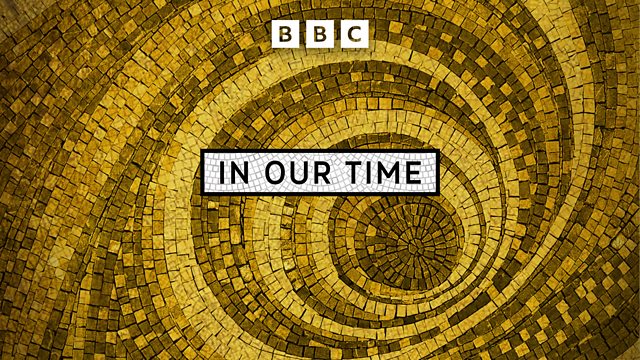
Zeno's Paradoxes (Archive Episode)
Melvyn Bragg and guests discuss the paradoxes attributed to Zeno of Elea (c490-430BC) which have stimulated mathematicians and philosophers for millennia.
After 27 years, Melvyn Bragg has decided to step down from the In Our Time presenter’s chair. With over a thousand episodes to choose from, he has selected just six that capture the huge range and depth of the subjects he and his experts have tackled. In this third of his choices, we hear Melvyn Bragg and his guests discuss Greek philosophy. Their topic is Zeno of Elea, a pre-Socratic philosopher from c490-430 BC whose paradoxes were described by Bertrand Russell as "immeasurably subtle and profound." The best known argue against motion, such as that of an arrow in flight which is at a series of different points but moving at none of them, or that of Achilles who, despite being the faster runner, will never catch up with a tortoise with a head start. Aristotle and Aquinas engaged with these, as did Russell, yet it is still debatable whether Zeno's Paradoxes have been resolved. With Marcus du Sautoy Professor of Mathematics and Simonyi Professor for the Public Understanding of Science at the University of Oxford Barbara Sattler Lecturer in Philosophy at the University of St Andrews and James Warren Reader in Ancient Philosophy at the University of Cambridge Producer: Simon Tillotson In Our Time is a ÃÛÑ¿´«Ã½ Studios Production Spanning history, religion, culture, science and philosophy, In Our Time from ÃÛÑ¿´«Ã½ Radio 4 is essential listening for the intellectually curious. In each episode, host Melvyn Bragg and expert guests explore the characters, events and discoveries that have shaped our world
In Our Time podcasts
Download programmes from the huge In Our Time archive.
The In Our Time Listeners' Top 10
If you’re new to In Our Time, this is a good place to start.
Arts and Ideas podcast
Download the best of Radio 3's Free Thinking programme.
Podcast
-
![]()
In Our Time
Melvyn Bragg and guests discuss the ideas, people and events that have shaped our world.

